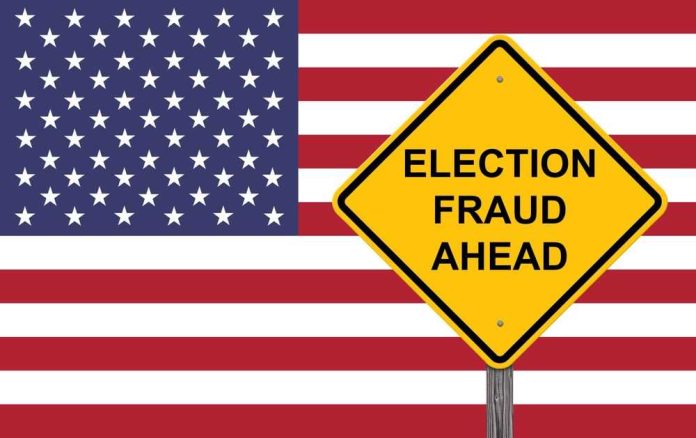
The Michigan Supreme Court just opened the floodgates for Republicans to finally hold local officials accountable for shutting them out of the election process—and you won’t believe how long Democrats got away with it in Flint.
At a Glance
- Michigan Supreme Court rules 5–1 that GOP can sue Flint over failure to appoint an even number of Republican poll inspectors
- Ruling reverses lower courts, handing Republicans major new legal standing in election oversight
- Case exposes how Democratic strongholds have skirted state law for years by stacking the deck at polling sites
- The decision could force cities across Michigan to clean up their act—or face lawsuits from both state and national Republican parties
Michigan Supreme Court Puts Flint’s Election Tactics on Trial
The Michigan Supreme Court sent shockwaves through the state’s election bureaucracy by deciding, in a 5–1 order on July 14, that the Michigan Republican Party and the Republican National Committee have the right to sue Flint’s Board of Election Commissioners for failing to appoint a fair number of Republican poll inspectors. After years of watching Democratic cities like Flint ignore the clear legal mandate to provide partisan balance at polling places, Republicans now have the green light to take the fight to court and shine a spotlight on what’s really going on behind the scenes.
For background, Michigan law isn’t ambiguous: local election boards are required to appoint “as close to an even number as possible” of election inspectors from each major party. This isn’t some trivial technicality. It’s a safeguard put in place to prevent partisan hijinks and restore public trust in the system—especially in cities that have become notorious battlegrounds in recent elections. Flint, with its deep blue tilt and history of close races, has become ground zero for these fights.
Years of Stonewalling End as Court Reverses Lower Rulings
The Michigan GOP and RNC’s lawsuit dates back to Flint’s 2022 general election, when the city was accused of brazenly ignoring the law by failing to provide enough Republican poll inspectors. Local and appellate courts tried to sweep the problem under the rug, dismissing the lawsuit on the grounds that only individual voters or candidates—not the parties—could bring such a challenge. The Supreme Court just torched that logic, declaring that the major parties have a “special right and substantial interest” in making sure the law is followed and that both parties have a real seat at the table when it comes to running elections.
With this ruling, the Supreme Court has handed Republicans a massive new weapon in the fight for election integrity. The lawsuit is now heading back to the circuit court, where Flint will have to answer real questions about why it couldn’t be bothered to follow the law. If Republicans are able to prove their case, Flint—and every other city playing by its own rules—will be forced to clean up its act.
Implications: Election Boards Across Michigan Face New Scrutiny
This isn’t just about Flint. The Supreme Court’s decision sets a precedent that could echo across every city and town in Michigan. Any municipality that thinks it can ignore the law and stack the deck with partisan poll workers is now on notice: the major parties have the power to haul them into court and demand answers. This could mean a wave of new lawsuits, more transparency, and a long-overdue reckoning for local election boards that have gotten far too comfortable running things their way.
For conservatives and anyone who values basic fairness at the ballot box, this is a rare win. Local governments might gripe about increased legal costs or administrative headaches, but maybe they should have been following the law in the first place. If it takes a lawsuit or two to get them back in line, so be it. The days of letting partisans run the show unchecked are finally numbered.
Broader Consequences for Election Integrity and Party Oversight
Legal experts are already weighing in, saying the decision clarifies that political parties have real power to enforce Michigan’s election laws—not just sit on the sidelines and hope for the best. There’s no denying this move could spark more litigation and, yes, add to the workload of local election officials. But the alternative—letting one party dominate the polling place while the other is kept out in the cold—is a recipe for disaster and erodes faith in the democratic process. At a time when people across the country are demanding more accountability and less political gamesmanship, it’s about time the courts stepped up and enforced the rules that are supposed to protect all voters.
Some on the left will howl that this decision will “politicize” election administration. But let’s get real: the only thing being politicized was the process of keeping Republicans out of the room. Now, with real legal standing, the GOP can ensure its poll inspectors are present and that every vote is counted with eyes from both sides on the process. That’s not partisanship—it’s common sense.
Sources:
Michigan Supreme Court official order



